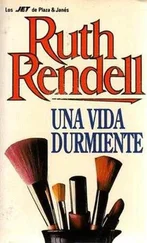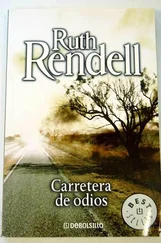“Let me offer you my best wishes for your future happiness, Mr. Mervyn,” he said.
“Thanks very much.”
“A fine day for your wedding,” said Arthur, “though somewhat chilly.”
He went indoors and passed Li-li going out, her rare effort at cleaning finished or abandoned. Again he was alone. He cooked his lunch, scoured the flat, watched Michael Redgrave in The Captive Heart on television. It wasn’t till darkness began to close in and lights came on in the tall houses opposite that he remembered he still had to collect his washing.
Winston had engaged one of the dining rooms at the Grand Duke for his wedding reception, and there at one-thirty the bride and groom, Leroy, Anthony, Winston’s brother and sister-in-law, and Linthea’s sister and brother-in-law sat down to lunch. Linthea gave Anthony a rose from the bouquet she was carrying.
“There, that means you’ll be the next to marry.”
He felt a painful squeeze of the heart. But he smiled down at the beautiful girl in her apple-green silk dress and said, “That’s only for bridesmaids.”
“For best men too. It’s an old West Indian custom.”
Cries of denial, gales of laughter greeted this. Anthony made a speech which he felt was feeble, though it was received with applause. He could hardly bear to look at Winston and Linthea, whose exchanged glances and secret decorous smiles spoke of happiness enjoyed and anticipated.
At four they all went back to Brasenose Avenue to collect Linthea’s luggage and then to Trinity Road for Winston’s. From the call box on the landing Winston phoned London Airport to check his honeymoon flight to Jamaica and was told it had been delayed three hours. By this time Leroy had already been carried off by his aunt, with whom he was to stay, and Linthea felt a dislike of going back to the empty flat. At a loose end, they were debating how they should kill the intervening time, when the front door, which had been left on the latch, crashed heavily, and a voice called up the stairs:
“The wedding guest, he beat his breast!”
Jonathan Dean.
“Thought I’d try and catch you before you left, old man. Wish you Godspeed and all that.” He showed, Anthony thought, no scars from grief over his dead friend, but seemed stouter and ruddier. Half-way up the stairs he met them coming down. “Did I hear someone mention killing time? How about a quick one or a few slow ones up the Lily?”
“It’s not five,” said Winston.
Jonathan agreed but said it wanted only ten minutes and that tempus was fugiting as usual. At this point Li-li emerged from Room 1 to be met by a look of frank lechery from Jonathan, who made a joke with heavy play on her name and that of the pub which evoked screams of merriment from Winston’s sister-in-law. And so, without much show of enthusiasm on the part of either bride or groom, the whole party, now swelled to seven, made their way towards the Waterlily.
When they reached the corner of Magdalen Hill and Balliol Street—by common unspoken consent, they avoided Oriel Mews—Anthony saw, standing on the other side of the street, waiting for the lights to change, a familiar lean figure in silver-grey overcoat and carrying an orange plastic laundry bag. The man’s face had the sore, reddish look he had noticed before, and there was something prickly and resentful in his whole bearing as if he took the persistent greenness of the traffic light and the stream of vehicles as an affront aimed personally at him. In that crowd, London working class, hippy-costumed drop-outs, brown immigrants, his clothes and his air set him apart and enclosed him in loneliness. Time and change had passed him by. He was a sad and bitter anachronism.
Anthony touched Winston’s arm. “Should we ask old Johnson to join us for a drink? It’s up to you, it’s your party, but it seems a bit cold not to …”
Before he could finish, Winston had hailed Arthur Johnson who had begun to cross the road. “I’m glad you saw him,” he said to Anthony. “He was rather nice to me this morning with his good wishes, and seeing everyone else in the house is here, it’s the least we can do. Mr. Johnson!” he called. “Can you spare a few minutes to come and celebrate with us in the Waterlily?”
Anthony wasn’t surprised to see that Arthur Johnson was flummoxed, even shocked, by the suggestion. First came the mottled flush, then a stream of excuses. “I couldn’t possibly—most kind but out of the question—a busy evening ahead of me—you must count me out, you really must, Mr. Mervyn.”
It seemed definite enough. But Anthony—and evidently Arthur Johnson—had reckoned without West Indian hospitality and West Indian enthusiastic pressure. In argument, Arthur Johnson would perhaps have won, but he was given no chance to argue, the situation being managed by Winston’s brother, a man of overpowering bonhomie. And Anthony who in the past had been irritated by and sorry for Arthur Johnson, now felt neither anger nor pity. It was all he could do to stop himself laughing aloud at the sight of this finicky and austere-looking man propelled into the saloon bar of the Waterlily between Perry Mervyn and Jonathan Dean. Arthur Johnson looked amazed and frightened. Still clutching his carrier bag, he had the air of some gentleman burglar of fiction apprehended by plainclothes policemen, the bag, of course, containing the spoils of crime. And now it was Li-li who took the bag from him, ignoring his protests and thrusting it under the settle on which she and Jonathan sat down with their victim between them.
———
It was a violation, a kidnapping almost, Arthur thought, too affronted to speak. He had never before entered the Waterlily which, in his youth, had been pointed out to him by Auntie Gracie as a den of iniquity. Bewildered, crushed by shyness, he sat stiff and silent while Jonathan Dean paid Li-li compliments across him and Li-li giggled in return. The stout and very black woman who faced him added to his discomfiture by asking him in rapid succession what he did for a living, if he was married and how long had he lived in Trinity Road. He was saved from answering her fourth question—didn’t he think her new sister-in-law absolutely lovely?—by Anthony Johnson’s asking him what he would drink. Arthur replied, inevitably, that he would have a small brandy.
“Claret is the liquor for boys, port for men, but he who aspires to be a hero must drink brandy.” Having quoted this, Dean roared with laughter and said it was by Dr. Johnson.
Arthur didn’t know what he meant but felt he was getting at him personally and perhaps also at Anthony Johnson. He wondered how soon he could make his escape. The brandy came and with it a variety of longer, less strong, drinks for the others, which made Arthur wonder if he had made a too expensive choice or even committed some gross social error. Two entirely separate conversations began to be conducted round the table, one between Li-li, Dean, and Mervyn’s sister-in-law, the other between the bridal couple and Mervyn’s brother. And Arthur was aware of the isolation of himself and the “other” Johnson, both of whom were left out of these exchanges. Anthony Johnson looked rather ill—had drunk too much, Arthur supposed, at whatever carousing had been going on since lunchtime—and he began turning over in his mind various opening gambits for a conversation between them. As the only English people present, for the loathsome Dean didn’t count and was very likely an Irishman, anyway, it was their duty to present some sort of solid front. And he had opened his mouth to speak of the severe frost which the television had forecast for that night, when Dean, raising his glass in what he called a nuptial toast, launched into a speech.
For some moments this was listened to in silence, though Winston Mervyn seemed fidgety. Didn’t like someone else stealing his thunder, Arthur thought. And Dean was certainly airing his education, spouting streams of stuff which couldn’t have been thought up on the spur of the moment but must have been written down first. It was all about love and marriage, and Arthur actually chuckled when Dean levelled his gaze on Mervyn’s stout brother-in-law and said that in marriage a man becomes slack and selfish and undergoes a fatty degeneration of his moral being. At the same time he was aware that under the table a heavily shod foot was groping across his ankles to find a daintily shod foot. He drew in his knees.
Читать дальше











